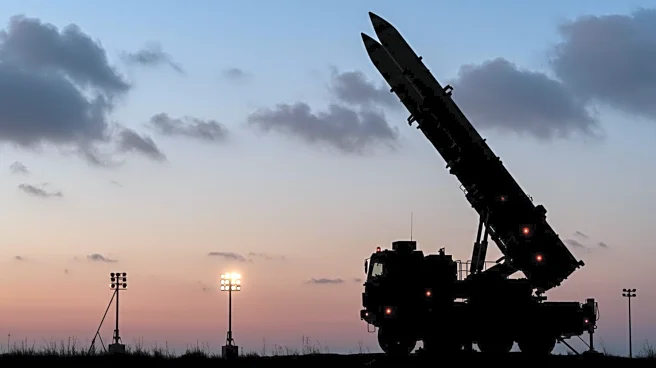What's Happening?
North Korea has issued a warning regarding the upcoming joint military exercise between the United States and South Korea, known as the Ulchi Freedom Shield (UFS). Scheduled to take place from August 18 to 28, the exercise has been criticized by North Korean Defense Minister No Kwang-chol, who accused the two allies of undermining the security environment on the Korean Peninsula. The minister described the drills as a direct military provocation and a real threat to North Korea, stating that the country would exercise its right to self-defense in the event of any provocation. The UFS exercise, which originally planned 40 drills, has postponed 20 due to a heat wave, flood damage, and South Korea's efforts to improve relations with North Korea.
Why It's Important?
The warning from North Korea highlights ongoing tensions on the Korean Peninsula, which have implications for regional security and international relations. The joint military exercises are seen by North Korea as a threat, potentially escalating military confrontations. This situation affects diplomatic efforts aimed at reducing hostilities and fostering peace in the region. The exercises also reflect the strategic military cooperation between the US and South Korea, which is crucial for maintaining stability in the face of North Korean threats. The postponement of some drills indicates a complex interplay of environmental factors and diplomatic considerations.
What's Next?
The continuation of the Ulchi Freedom Shield exercise will likely be closely monitored by North Korea, with potential for heightened military readiness or further diplomatic statements. The international community may respond with calls for restraint and dialogue to prevent escalation. South Korea's approach to balancing military preparedness with diplomatic outreach to North Korea will be critical in shaping future relations. The US may also engage in diplomatic efforts to address North Korea's concerns while maintaining its defense commitments to South Korea.
Beyond the Headlines
The situation underscores the delicate balance between military preparedness and diplomatic engagement in the region. The exercise's postponement due to environmental factors also highlights the impact of climate conditions on military operations. Additionally, the emphasis on self-defense by North Korea raises questions about the country's military strategy and its implications for regional security dynamics.









